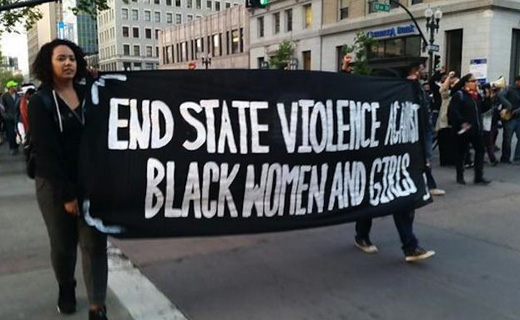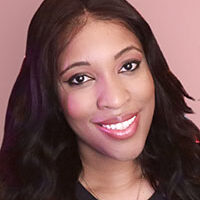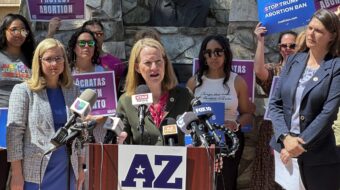
The trial of Daniel Holtzclaw, the former Oklahoma City police officer charged with sexually assaulting and raping 13 black women, began this Monday, and it unsurprisingly has gone under the mainstream media’s radar. This is despite the fact that the jury selected for Holtzclaw’s trial is all white, and over 50 percent percent male.
The lack of media coverage, and the makeup of the jury for this trial has caused an uproar on social media, as concerned users question the lack of coverage, the valuing of black female lives, and the justice system.
Holtzclaw is accused of preying on over a dozen women, usually of color, in northeast Oklahoma City. These women ranged from ages 17 to 58.
Holtzclaw was arrested in August for the assaults of at least eight women, but was released on bail when his $5 million dollar bond was reduced to $500,000. He was put under strict house arrest but has violated the terms twice.
The former officer was then fired in January of 2015 after more women began coming forward about their assaults at the hands of a man paid to serve and protect the community in which they lived. Currently 13 women have come forward, while Holtzclaw faces up to 36 charges, including first-degree rape, sexual battery, indecent exposure, stalking, and burglary.
It would appear that Holtzclaw’s routine was to target poor, working-class, black women, with criminal records. He would give them the ‘option’ of sexual abuse or jail time.
Holtzclaw was exposed when he pulled over and assaulted an older black woman in June, who was not from the area. The woman reported the crime to police when she got to her home.
As the trial begins the strategy of the prosecution and the defense has become clear. As reported by KOCO, KFOR, and KOKH, Assistant District Attorney Gayland Geiger will be relying on the damning evidence against Holtzclaw. Included are a victim’s DNA on Holtzclaw’s pants, GPS tracking from Holtzclaw’s patrol car computer, and phone records and messages from Holtzclaw “contacting [a] victim at her home wanting to have sex.”
Defense attorney Scott Adams’ strategy appears to be about painting Holtzclaw in a more favorable light, while questioning the character of the victims in the case. In Adams’ opening statement he reportedly spoke about Holtzclaw’s “community policing” education, and said he “was trying to get to know the people in the area he patrols.”
Adams explained that he would attempt to refute the DNA evidence, while characterizing Holtzclaw as an “all American good guy.” Adams’ described the women who stepped forward as having “street smarts… street smarts like you can’t imagine.” Clearly Adams wants to paint a picture that the alleged victims are not to be trusted, and may not be victims at all.
The lack of coverage, the jury selection, and the opening statement of the defense attorney caused an uproar on social media as many voiced their opinions on the way the case was being handled. Activist and online persona, Feminista Jones, tweeted, “If #DanielHoltzclaw is acquitted, it will be because of the American standard belief that Black women+girls deserve sexual abuse or can’t be raped.” Another user, Trudy, noted, “No Black women on a jury where a cop serially targeted Black women for sexual violence. #DanielHoltzclaw.” Brianna Wu, asked, “This #DanielHoltzclaw story is horrifying, a cop on trial for sexually abusing 8 black women. Where is the media?” One user strongly noted, “Today our justice system is on trial. Today, white privilege is on trial. Today, systemic racism is on trial. God help us. #DanielHoltzclaw.”
The Huffington Post’s Julia Craven wrote, “Jury pools are legally mandated to be representative of the jurisdiction’s demographics. Over half of Oklahoma City’s population is female and 16 percent of the city’s population is black, according to the most recent census data. But that doesn’t mean the entire population is in the eligible jury pool.
“Oklahoma has the second-highest incarceration rates for black men in the country. The state also incarcerates more women than any other state in the nation, with 127 of every 100,000 women being locked up — double the national rate.”
Craven goes on to note, and rightly so, that the statistics show the legal system continues to target black Americans, and the bias that is evident. The case also brings into light the role of rape culture in our society, (a term coined by feminists in the U.S in the 1970’s as a way to show the ways in which society blames victims of sexual assault and normalizes male sexual violence).
As part of that culture, when women come forward to report sexual abuse, their character is brought into question, and victim blaming becomes a legal tactic by defense attorneys.
Holtzclaw’s family gave a statement to the news outlet Buzzfeed last year regarding the alleged victims, saying, “witness and officer testimony presented by the prosecution … is based on solicited testimony by the police department of felons, prostitutes and others who would have personal motives beyond the basic truth to fabricate their stories.”
As the trial continues it is clear that this it is a case that should be paid attention to. Black women face a serious situation in a system that historically mistreats them. It is also a trial to be paid attention to bewcasue it highlights sexism and victim blaming, and just how much Holtzclaw’s fight for being proven innocent will rely on the “guilt” being projected onto his alleged victims.
As the popular twitter hashtag, “BlackWomenMatter,” notes, the media coverage and conversation around this case will not only put Holtzclaw on trial, but the system itself on trial regarding the valuing of black bodies and justice. The lack of media coverage and the selection of an all white, predominantely male, jury, already gives the feeling that it might end up being an all too familiar story with an all too familiar damning conclusion on just who justice is meant for.
Photo: TLAXCALA

MOST POPULAR TODAY


Zionist organizations leading campaign to stop ceasefire resolutions in D.C. area

Communist Karol Cariola elected president of Chile’s legislature

Afghanistan’s socialist years: The promising future killed off by U.S. imperialism

High Court essentially bans demonstrations, freedom of assembly in Deep South






Comments